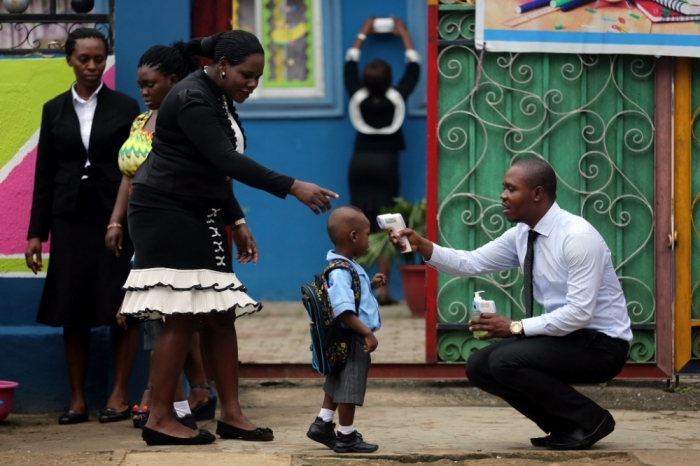Nigeria, Senegal Declared Free of Ebola Virus; Success Stories to Inspire Other Countries

Senegal and Nigeria were declared free of the Ebola virus after six weeks with no new cases, heralding some good news in the battle against the outbreak and offering lessons to countries that are still struggling to contain it.
"This is a spectacular success story," World Health Organization Representative Rui Gama Vaz said at a news conference in Nigeria, Reuters reported on Monday.
"It shows that Ebola can be contained, but we must be clear that we have only won a battle, the war will only end when West Africa is also declared free of Ebola."
In total, Nigeria reported 19 Ebola cases in its territory, which led to seven deaths. The outbreak has hit the countries of Sierra Leone, Liberia and Guinea the hardest, where over 4,500 people have died.
Late last week, Senegal was declared free of Ebola as well. The country confirmed an Ebola case at the end of August when a young man travelled from Guinea by road, and was confirmed to have had direct contact with an Ebola patient. Swift government response identified and monitored 74 close contacts the young man had with other people, preventing the spread of the outbreak.
Ebola cases have also reached western countries like the U.S. and Spain, heightening concern for the spread of the disease.
The heavily affected West African countries are dealing with strained health systems, and WHO has called on the international community for greater support in helping them bring down the number of cases.
When the first reported case hit Lagos in Nigeria in July, health officials responded with concern, as contacts in the city of 21 million people are difficult to trace. Swift government response played an important role in containing an outbreak, however.
"Nigeria was not really prepared for the outbreak, but the swift response from the federal government, state governments (and) international organizations ... was essential," said Samuel Matoka, IFRC Ebola operations manager for Lagos.
"The swiftness and fastness of the reaction from all parties, helped to contain Ebola in Nigeria."
WHO said that Nigeria could serve as an important example for the other countries fighting Ebola.
"If a country like Nigeria, hampered by serious security problems, can do this ... any country in the world experiencing an imported case can hold onward transmission to just a handful of cases," WHO Director Margaret Chan said in a statement.
John Vertefeuille of the U.S. Centers for Disease Control and Prevention added that Nigeria had taken the right steps to contain the outbreak.
"Nigeria acted quickly and early and on a large scale," Vertefeuille told AFP news agency. "They acted aggressively, especially in terms of contact-tracing."
Just last week, WHO had warned that the mortality rates from Ebola have gone up to 70 percent, and that there could be as many as 10,000 new cases recorded per week by the end of the year.
The international agency has said that in order to declare an Ebola outbreak over, a country must pass 42 days with active surveillance in place, supported by good diagnostic capacity, and with no new cases detected.





























